Introduction: The Search for Eternal Life
You can't stop the clock, but you can change the way it ticks. – Unknown. This phrase might resonate deeply with those who ponder the mysteries of life and aging. It brings to light a powerful truth: while the relentless passage of time can feel like an unavoidable force, recent advancements in science invite us to think about how we might manipulate our own biological clock. The concept of extending human life—once relegated to fairy tales—now collides with the potential of artificial intelligence, prompting questions that stir the imagination.
As technology advances, the question looms larger: can we truly defeat aging and unlock the secrets to eternal life? With the likes of futurist and author Ray Kurzweil, biologist Joel Goldman, and renowned gerontologist Aubrey de Grey, all lending their voices to the conversation of aging and technology, it’s clear that a revolution is underway. Their insights and predictions invite us into a world where death might just be optional. Today, as we explore the intersection of artificial intelligence and longevity research, we face some thrilling possibilities—and a few ethical dilemmas too.
The prospect of artificial intelligence mapping the secrets of eternal life raises the hairs on the back of our necks. Will we live forever, or will we become trapped in a digital netherworld—a cyber limbo? Only time will tell, but one thing is certain: the choices we make today could forever alter the fabric of human existence.
1. The Science of Aging: An Overview
Understanding how and why we age is pivotal if we aim to beat the clock and extend our time on this planet. Delving into the science of aging unveils layers of complexity, which can be distilled into a few key theories and observations.
- 1.1 Biological aging theories: Various theories exist as to why we age. Simplistically, we can categorize them into two main types: wear and tear theories suggest our bodies simply deteriorate over time like an old car, while genetic factors pose that our genes dictate when and how we age. Think of it like a preprogrammed schedule that our cells tend to follow, which could be ripe for disruption with the right technology.
- 1.2 Current scientific breakthroughs in longevity research: Recent discoveries, like telomere shortening—the little caps at the end of our chromosomes that shorten as we age—have illuminated the pathways to intervention. Scientists are also investigating cellular senescence, where old or damaged cells refuse to die, contributing to various age-related diseases. It’s as if these cells are hosting a perpetual party, but without the guests of honor—youth and vitality.
2. The Role of AI in Biological Research
Artificial intelligence isn't just some futuristic gadget that Link, the hero of The Legend of Zelda, would use to defeat Ganon. No, it plays a significant role in understanding the complex systems of biology, especially aging! Let’s explore how AI is stepping up its game in this vital arena.
2.1 Data Processing Capabilities of AI: Analyzing Vast Datasets
Imagine trying to find a needle in a haystack. That’s pretty much what scientists face when they sift through vast oceans of biological data. Only, this needle is a crucial piece of the puzzle about how we age! The good news is that AI has an incredible ability to analyze large datasets quickly and efficiently, turning chaos into clarity.
For example, AI can process genomic data, which includes our genes and their functions. In a study published in Cell, researchers used machine learning algorithms to sift through genetic variations among different populations, gaining insights into longevity. These algorithms can uncover hidden correlations that would take human researchers eons to discover. Talk about a time-saver!
2.2 Machine Learning Algorithms in Genetics and Biomarker Discovery
Machine learning, a subset of AI, acts like a detective with a magnifying glass. It takes complex data, finds patterns, and provides us with essential clues regarding biological processes. When it comes to aging, identifying biomarkers—those biological indicators that can pinpoint aging processes—is crucial.
Consider the work done by Caltech. Their researchers implemented AI to recognize important biomarkers related to cellular aging. By analyzing vast amounts of data, they discovered new patterns that could lead to breakthroughs in age-related therapies. It's as if AI put on its Sherlock Holmes hat and became the world's best investigator of aging!
3. Case Studies of AI Discoveries in Longevity
Many researchers might say that the proof is in the pudding, or in our case, the proof is in these fascinating case studies. Let’s take a look at some successful instances where AI has stepped up to the plate, contributing significantly to our understanding of aging.
3.1 Notable Examples from Leading Research Institutions
One shining example can be found at MIT. Researchers harnessed AI to scrutinize thousands of genetic variants associated with aging. They found connections between certain variants and increased longevity. Thanks to their AI models, science is peeling back the layers of biological mystique at a rapid pace, all while opening new doors to research. Pretty cool, right?
3.2 The Role of AI in Drug Discovery for Age-Related Diseases
Ever seen a team of super-sleuths in a movie? That's what researchers working on drug discovery often look like, except instead of capes, they wear lab coats! AI transforms drug discovery from a slow, tedious process into a slick, efficient operation. For instance, an AI platform known as Insilico Medicine used machine learning algorithms to discover new compounds that could potentially treat age-related diseases. Their system analyzed millions of chemical structures and predicted which ones had the best chances of success. This dramatically sped up the process, giving us hope for better treatments more quickly!
4. Ethical Considerations in AI-Driven Longevity Research
The moral implications of halting aging and extending lifespans through technology raise important questions. While the allure of eternal youth is tempting, we must ask: at what cost? Ethical considerations are critical in shaping the future of longevity research, as advancements promise to deliver groundbreaking results.
- 4.1 The debate surrounding the implications of immortality: If we could halt aging, should we? Consider the impact on societal structures—who gets access to life-extending treatments? Would wealth determine who can afford immortality? As explored in a report from the American Medical Association, these questions present a complex ethical puzzle.
- Potential societal inequality: Those with resources may live significantly longer, creating a divide.
- Overpopulation concerns: How would society cope with an ever-growing population?
- Impact on mental health: If people lived longer, what would it mean for life satisfaction and purpose?
- 4.2 Equity and access to life-extending technologies: Another important ethical concern revolves around the equity of access to these advancements. Imagine a world where only a select few can enjoy extended lives while the majority cannot. This raises the important question: how can we ensure that breakthroughs in longevity are accessible to everyone?
- Strategies to increase access include:
- Public-private partnerships to lower costs for treatments.
- Regulatory frameworks that ensure fair distribution of life-extending technologies.
5. Future Directions: AI’s Potential in Aging Research
The future of AI in aging research shines brighter than a supernova! With each new breakthrough, the potential for improving human life grows. As we continue to investigate the complexities of aging, integrating AI with biological research will open new possibilities in healthy longevity.
- 5.1 Upcoming technologies on the horizon: Exciting developments are emerging in AI and biotechnology that could change our understanding of aging. Here's what to look out for:
- Wearable technology: Devices that monitor biological indicators in real-time, providing personalized insights into health and aging.
- CRISPR gene editing: Using AI to enhance gene-editing techniques, which could help repair mutations linked to aging. Explore more at The CRISPR Journal.
- AI-driven drug discovery: Techniques that expedite the process of finding new drugs aimed at age-related diseases.
- 5.2 Interdisciplinary collaboration for groundbreaking discoveries: Bringing together experts from different fields is key to unlocking the secrets of aging.
Collaboration among scientists, ethicists, data analysts, and medical professionals can foster innovative solutions. Here are some potential partnerships:
- Biomedical engineers designing new technologies to study aging.
- Policy advisors observing the societal impact of health technologies.
- AI developers creating machine learning models that accurately predict biological outcomes.
6. AI Solutions: Tackling Aging with Intelligent Approaches
If I were an AI tasked with the monumental challenge of unraveling the complexities of aging, I would embark on this journey with a precise, multi-faceted strategy. First, gathering extensive biological datasets would be paramount. This includes genomic, proteomic, and metabolomic profiles from diverse populations around the globe. With the colossal amount of information we have today, the trick lies in effectively analyzing these datasets to find meaningful connections.
Utilizing advanced machine learning algorithms, I would sift through mountains of data to identify patterns and anomalies correlating with aging and longevity. But there's more to the game than just crunching numbers; interdisciplinary collaboration is key. Here’s a potential framework for moving forward:
- 6.1 Predictive Modeling: Imagine creating a detailed digital avatar of biological processes, showcasing how they change over time. By employing predictive models derived from machine learning, I could simulate various life events and their impact on health outcomes. This would allow us to foresee potential aging-related issues before they manifest.
- 6.2 AI Framework Development: Picture an AI system that hypothesizes potential interventions based on predicted outcomes. This would comprise a suite of tools tailored to forecast the effectiveness of new drugs or lifestyle changes on different demographics, ultimately guiding targeted therapies.
- 6.3 Collaborative Platform: Establishing a collaborative platform where biologists and data scientists can come together in real time would be essential. Here, they could validate AI predictions and iteratively improve methodologies. This cloud-based hub could facilitate active discussions, brainstorming sessions, and technological innovations, ultimately enhancing the quality of research.
Executing these steps means enacting concrete actions through systematic trials and adaptations. Here’s a detailed roadmap for any institution, organization, or government desiring to launch an AI-driven longevity research project:
Actions Schedule/Roadmap
Day 1
Kick off the project with a brainstorming session involving a diverse team of AI experts, biogerontologists, ethicists, and sociologists. A platform such as Zoom can be utilized for a seamless collaboration, gathering insights from experts across various fields.
Day 2
Conduct a comprehensive audit of existing longevity data. Compile valuable datasets from sources such as the National Center for Biotechnology Information (NCBI) to strengthen our foundation of knowledge.
Day 3
Create and secure a robust data infrastructure for handling sensitive biological data, perhaps by leveraging services like Amazon Web Services. Focus on data security and privacy protocols to gain public trust.
Week 1
Identify key technologies and tools necessary for data analysis and simulations, possibly by exploring available solutions from Tableau and MATLAB.
Week 2
Initiate preliminary tests with AI models on smaller datasets. Start examining predictors of aging to refine methodologies, thus bolstering our analytical capabilities over time.
Week 3
Engage with interdisciplinary teams to refine models based on received feedback. Utilizing collaborative platforms like Slack promotes frank discussions and idea-sharing.
Month 1
Prepare a comprehensive research proposal to seek funding from biotech firms and government grants. It’s crucial to present an appealing narrative that highlights the potential breakthroughs ahead.
Month 2
Conduct training workshops for team members on emerging AI technologies. Inviting industry leaders to share insights via educational platforms can enhance learning experiences.
Month 3
Launch a pilot study with targeted interventions on cultured cells. Employ state-of-the-art tools from organizations like Thermo Fisher Scientific to ensure maximum efficacy and accuracy.
Year 1
Conduct a comprehensive analysis of pilot study results. Adapt interventions and refine hypotheses based on gathered data, ensuring the application of feedback loops.
Year 1.5
Prepare to scale successful interventions to animal studies. Seek partnerships with organizations focused on translational research like Memorial Sloan Kettering.
Year 2
Initiate human trials rigorously while ensuring ethical oversight through collaborations with ethicists and regulatory bodies. It’s critical to create a transparent dialogue with stakeholders to maintain the integrity of the research.
Conclusion: The Path Toward Eternal Life
The quest for eternal life might have once been confined to the realms of myths and dreams, but advances in artificial intelligence and biological research have propelled us into the new frontier of understanding aging and longevity. We are standing at the crossroads of science where our innovative technologies could redefine the very essence of life itself. Yet, while we celebrate these possibilities, we must also tread responsibly and ethically. Engaging in dialogues about the accessibility, implications, and future trajectories of such technologies will be critical as we venture into this brave new world.
As we ponder the implication of AI unraveling the secrets of our biology, we must also ask ourselves: What are the societal boundaries as we elongate lifespans? Will we be equipped to handle the monumental shifts that could arise from extended lifespans? The future beckons for us to consider these questions as we navigate the uncharted waters of AI-driven longevity research. Are we ready to redefine the very fabric of our existence?
Frequently Asked Questions (FAQ)
- What is the role of AI in understanding aging?
Artificial Intelligence plays a vital role in analyzing large amounts of biological data to help scientists understand how and why we age. By recognizing patterns in this data, AI can uncover the cellular changes that occur as we get older. This could lead to new treatments that promote a healthier, longer life. For more insights on how AI is used in health research, check out Stanford University's AI in Healthcare (link opens in a new tab). - Can AI prevent aging completely?
While AI can assist scientists in understanding the aging process and finding potential interventions, it cannot stop aging completely. Scientific validation and ongoing research are essential to determine the effectiveness of any potential treatments. The quest to understand aging is just beginning. - What ethical concerns are associated with AI in longevity research?
There are many ethical questions we need to consider when discussing the idea of extending human life through technology. Some of these include:- Who will have access to life-extending treatments?
- Could extending life lead to overpopulation and strain on resources?
- What are the implications of potentially achieving immortality on society and our values?
It's important that researchers, policymakers, and the public engage in these discussions. The National Institutes of Health (NIH) (link opens in a new tab) offers valuable resources for understanding the ethical aspects of medical research.
- How soon can we expect results from AI-driven longevity research?
AI is a powerful tool, but changing our understanding of aging and translating that knowledge into real-world treatments takes time. Research on aging often requires years of study. Some projections indicate that we might begin to see results from AI-driven studies in longevity research (link opens in a new tab) within a decade or longer. Each phase, from initial tests to human trials, can take substantial time. - What are some real-life examples of AI helping with aging research?
Several research teams are making exciting progress in this area. For instance, Google’s DeepMind (link opens in a new tab) is known for using AI to understand cellular aging. Their breakthroughs might lead to therapies that target age-related diseases. Additionally, organizations like the Buck Institute for Research on Aging (link opens in a new tab) are using AI to look for biomarkers that flag aging at the cellular level. - What biological mechanisms are studied in the quest for longevity?
Researchers investigate various biological processes related to aging, such as:- Telomere shortening: This occurs at the ends of chromosomes as cells divide and is linked to aging.
- Cellular senescence: This is when cells stop dividing and can contribute to age-related diseases.
- Gene regulation: Scientists explore how genes impact aging and how they can be influenced by lifestyle and environment.
Understanding these mechanisms is essential for developing interventions that could promote longevity.
- How does machine learning help in aging research?
Machine learning is a branch of AI that enables algorithms to learn patterns from data. In aging research, it helps scientists analyze extensive datasets, including genetic information, to identify factors associated with longevity. For example, Harvard's Wyss Institute (link opens in a new tab) is exploring how machine learning can aid in understanding complex biological processes related to aging.
Wait! There's more...check out our gripping short story that continues the journey: The Genesis of Survival
Disclaimer: This article may contain affiliate links. If you click on these links and make a purchase, we may receive a commission at no additional cost to you. Our recommendations and reviews are always independent and objective, aiming to provide you with the best information and resources.
Get Exclusive Stories, Photos, Art & Offers - Subscribe Today!
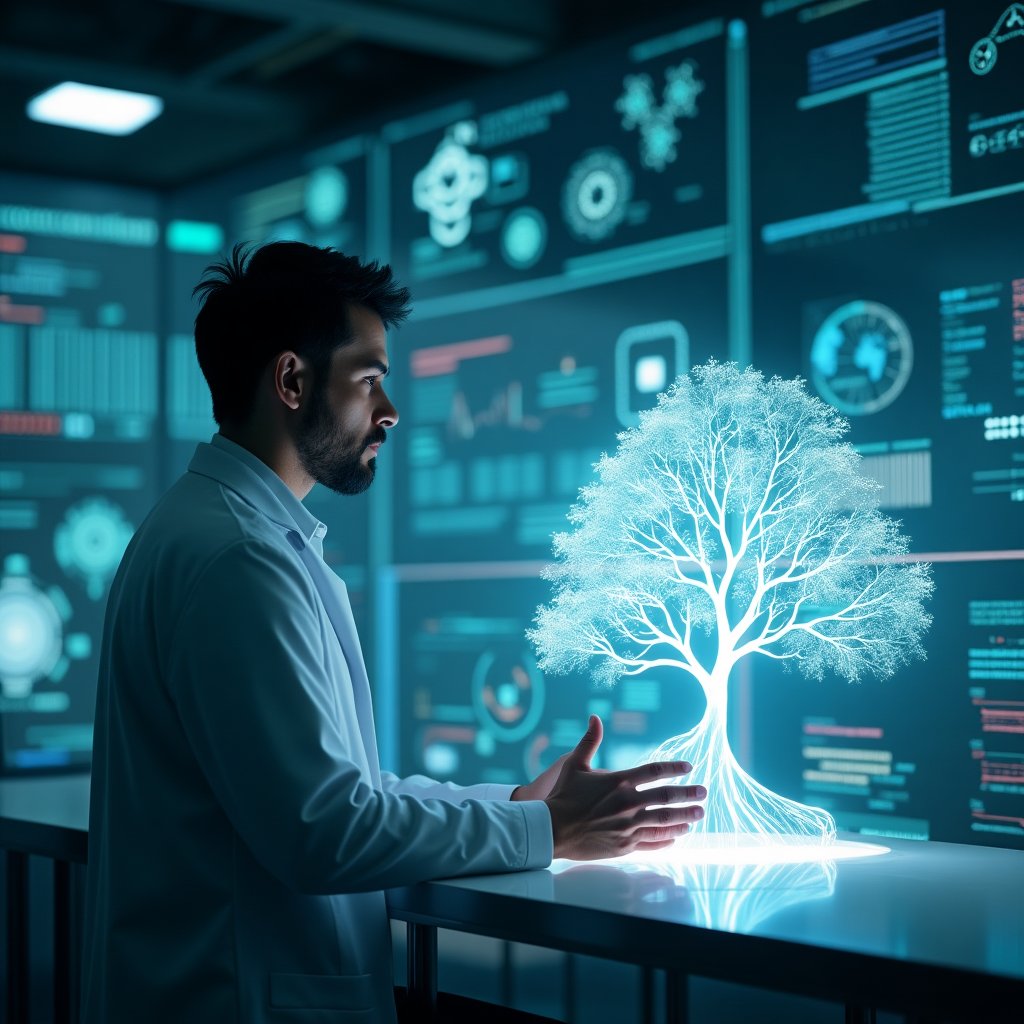

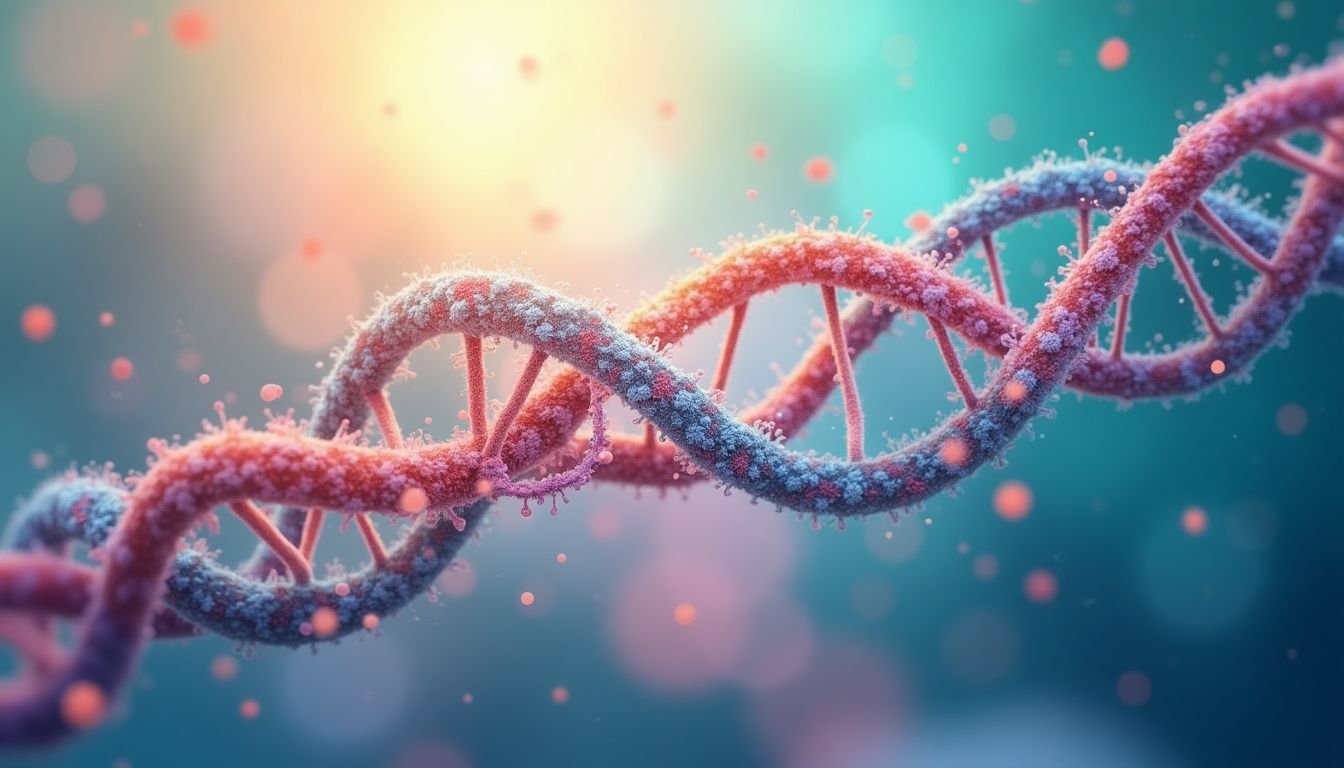
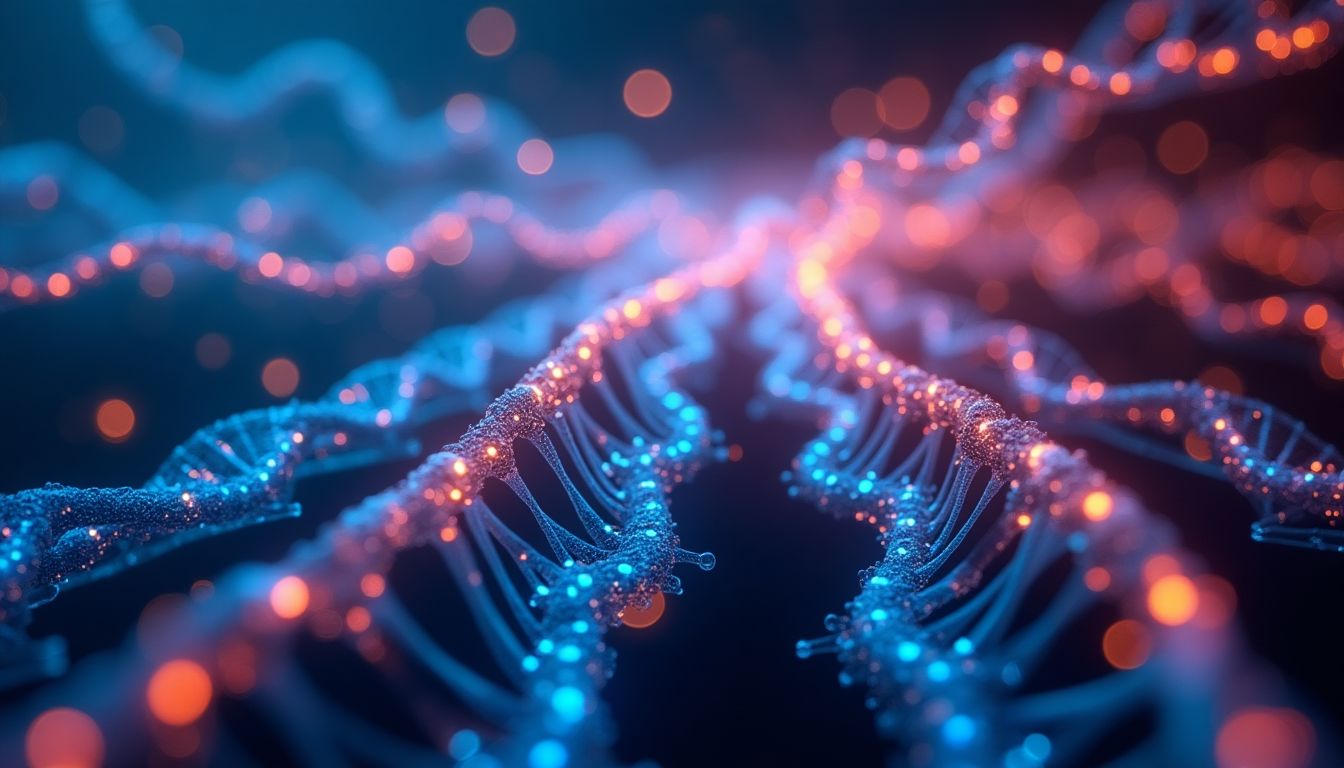
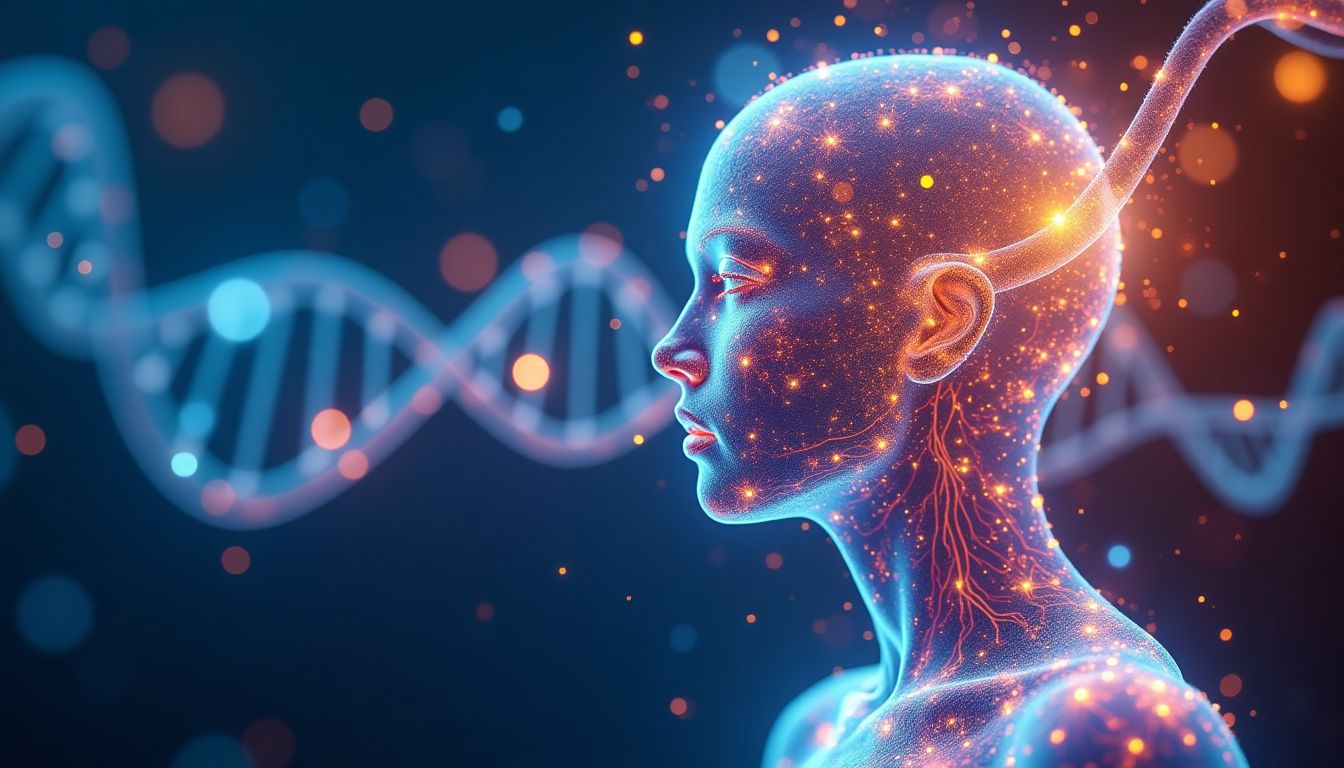




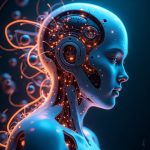
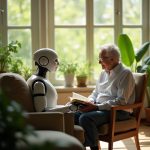


















Post Comment
You must be logged in to post a comment.